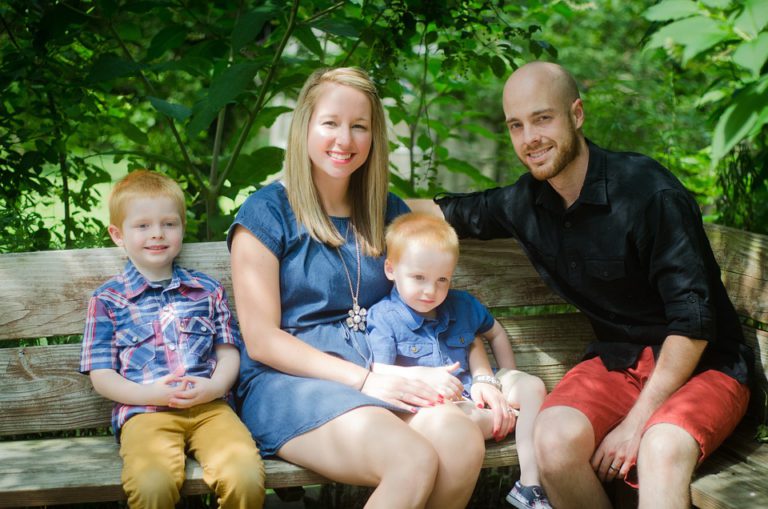Contents
- 1 Subtitle: Ensuring Blended Family Success: Exploring the Effectiveness of Couples Therapy for Stepparents
- 2 Benefits of Couples Therapy for Stepparents
- 3 Considerations for Successful Couples Therapy in Stepparenting
- 4 Long-Term Benefits of Couples Therapy for Stepparents
- 4.1 How effective is couples therapy in improving the relationship dynamics between stepparents in blended families?
- 4.2 What are some specific strategies or techniques used in couples therapy that have shown success in addressing the unique challenges faced by stepparents?
- 4.3 Can couples therapy help in establishing a stronger bond and sense of unity between stepparents and their partners, ultimately benefiting the overall family dynamic?
- 4.4 Related Posts

Does Couples Therapy Work? In this article, we dive deep into the effectiveness of couples therapy for stepparents. Exploring its potential benefits and limitations, we examine how therapists can help stepparents navigate the unique challenges that arise in blended families. Discover if couples therapy is a valuable tool for building stronger and healthier relationships in the stepparenting journey.
Subtitle: Ensuring Blended Family Success: Exploring the Effectiveness of Couples Therapy for Stepparents
Ensuring Blended Family Success: Exploring the Effectiveness of Couples Therapy for Stepparents
In the context of Stepparent, it is crucial to address the challenges and dynamics that arise in blended families. Blending two families together can be a complex process, as individuals navigate new roles, relationships, and responsibilities.
One approach that has shown promise in fostering success in blended families is couples therapy. Couples therapy provides a safe and supportive environment for stepparents to explore their feelings, concerns, and goals within the family dynamic.
Through couples therapy, stepparents can develop effective communication strategies, strengthen their bond with their partner, and gain insights into the unique dynamics of blended families. By addressing these issues together, couples can work towards creating a cohesive and harmonious family unit.
It is important to note that couples therapy should be tailored specifically to the needs and challenges faced by stepparents. Therapists who specialize in working with blended families can provide valuable guidance and support, offering strategies and techniques that are specifically designed to address the complexities of stepparenting.
By prioritizing the well-being of the couple and the family as a whole, couples therapy can play a vital role in ensuring the success of blended families. It provides a platform for open and honest communication, facilitates understanding and empathy, and helps stepparents build strong foundations for their relationships with their stepchildren.
In conclusion, couples therapy holds great potential in supporting stepparents in their journey towards building successful blended families. By addressing the unique challenges and dynamics present in these families, couples therapy can empower stepparents to navigate their roles effectively, nurture their relationships, and create a harmonious and loving environment for all family members involved.
Benefits of Couples Therapy for Stepparents
Couples therapy can be highly beneficial for stepparents who are navigating the complexities of blended families. With the help of a qualified therapist, couples can address issues, improve communication, and build stronger relationships within their stepfamily. Through therapy, stepparents can gain valuable tools and skills to navigate challenges and create a harmonious family dynamic.
Improved Communication: One of the key focuses of couples therapy is improving communication between partners. This is especially crucial for stepparents, as effective communication is essential in navigating the unique dynamics of blended families. Therapy provides a safe space for couples to express their concerns, frustrations, and expectations, ultimately leading to better understanding and more open communication.
Conflict Resolution: Conflict is inevitable within any family, and blended families are no exception. Couples therapy can help stepparents develop effective conflict resolution strategies that promote healthy problem-solving and reduce tension within the family. By learning how to navigate disagreements in a respectful and constructive manner, stepparents can contribute to a more peaceful and cohesive stepfamily environment.
Building Stronger Relationships: Stepparenting can be challenging, especially when it comes to building strong relationships with stepchildren. Couples therapy can provide guidance on how stepparents can develop positive relationships with their stepchildren, fostering trust, respect, and connection. Through therapy, stepparents can gain insights into their role within the family and implement strategies to bond with their stepchildren on a deeper level.
Considerations for Successful Couples Therapy in Stepparenting
While couples therapy can be highly beneficial for stepparents, there are certain considerations to keep in mind for successful outcomes.
Commitment: Both partners must be committed to attending therapy sessions regularly and actively participating in the process. Stepparents and their partners need to be willing to invest time, effort, and emotional energy into the therapy process for it to be effective.
Understanding Blended Family Dynamics: Therapists who specialize in stepparenting can provide valuable insights into the unique dynamics of blended families. It is important to find a therapist who understands the complexities of stepfamily relationships and can guide the couple accordingly.
Openness and Flexibility: Stepparents must be open to exploring their own emotions, attitudes, and behaviors within the therapy setting. Flexibility is also key as stepparenting often requires adapting to changing family dynamics and expectations.
Long-Term Benefits of Couples Therapy for Stepparents
The benefits of couples therapy for stepparents extend beyond immediate problem-solving. Here are some long-term advantages that can result from engaging in therapy:
Stronger Bonds: By addressing issues and improving communication, couples can strengthen their bond and create a solid foundation for their relationship. This not only benefits the couple, but also positively impacts the stepfamily dynamic as a whole.
Improved Co-Parenting: Successful therapy can lead to improved co-parenting between stepparents and their partners. Through therapy, parents can learn how to work together, set consistent boundaries, and make joint decisions for the well-being of all children involved.
Personal Growth: Couples therapy can also facilitate personal growth for stepparents, helping them gain insight into their own triggers, past experiences, and patterns of behavior. This self-awareness can contribute to personal development and overall well-being.
In conclusion, couples therapy can be immensely valuable for stepparents, helping them navigate the challenges of blending families, improving communication, resolving conflicts, and building stronger relationships within their stepfamily. With commitment, understanding of unique dynamics, and openness to change, stepparents can reap long-term benefits from engaging in therapy.
How effective is couples therapy in improving the relationship dynamics between stepparents in blended families?
Couples therapy can be an effective tool in improving the relationship dynamics between stepparents in blended families. It provides a safe and supportive space for the couple to discuss their concerns, work through conflicts, and develop better communication and problem-solving skills.
During therapy sessions, the couple is encouraged to explore their expectations, roles, and boundaries within the blended family. This helps them gain a clearer understanding of each other’s perspectives and challenges, leading to improved empathy and mutual understanding.
Therapists can also provide guidance on how to navigate common issues that arise in stepfamily dynamics, such as discipline strategies, co-parenting with the biological parents, and managing different parenting styles. They can help stepparents develop effective strategies for building positive relationships with stepchildren and managing conflicts that may arise.
Couples therapy can assist in fostering a more cohesive and supportive atmosphere in the blended family, promoting better communication and conflict resolution skills. It allows the couple to work together as a team, addressing challenges collaboratively and strengthening their bond.
However, it’s important to note that the success of couples therapy depends on several factors, including the willingness of both partners to actively participate and commit to the process. It can also be helpful for other family members, such as children and biological parents, to participate in therapy sessions when appropriate.
Overall, while couples therapy can be highly beneficial for stepparents in blended families, it’s essential to find a therapist experienced in working with these unique family dynamics to ensure the best possible outcomes.
What are some specific strategies or techniques used in couples therapy that have shown success in addressing the unique challenges faced by stepparents?
One specific strategy used in couples therapy to address the unique challenges faced by stepparents is:
1. Role clarification and negotiation: Stepparents often struggle with defining their role within the blended family dynamics. Couples therapy can help stepparents and biological parents clarify and negotiate their roles, responsibilities, and expectations. This process involves open communication, active listening, and setting realistic boundaries.
Other techniques employed in couples therapy for stepparents include:
2. Coping and stress management: Stepparenting can be stressful, as it involves navigating complex relationships and handling various emotions. Couples therapy can teach stepparents effective coping mechanisms and stress management techniques to better deal with the demands of their role.
3. Building healthy communication: Effective communication is crucial in any relationship, especially in blended families. Couples therapy can facilitate improved communication between stepparents and biological parents, focusing on active listening, expressing needs and concerns, and resolving conflicts constructively.
4. Establishing clear boundaries: Couples therapy can assist stepparents in setting and maintaining clear boundaries with stepchildren and other family members. This includes developing strategies to address potential conflicts or challenges that may arise while ensuring the well-being of all family members.
5. Blending parenting styles: Combining parenting styles from different households can be challenging. Couples therapy can help stepparents and biological parents identify similarities and differences in their parenting approaches and work towards a unified parenting style that respects individual values and promotes consistency in discipline and rewards.
6. Building trust and rapport: Couples therapy can support stepparents and biological parents in developing trust and rapport with one another. This involves acknowledging past experiences, fostering empathy, and working towards shared goals and a sense of teamwork within the blended family.
It’s important to note that every blended family is unique, and couples therapy should be tailored to meet their specific needs and circumstances.
Can couples therapy help in establishing a stronger bond and sense of unity between stepparents and their partners, ultimately benefiting the overall family dynamic?
Yes, couples therapy can definitely help in establishing a stronger bond and sense of unity between stepparents and their partners, ultimately benefiting the overall family dynamic.
Stepparenting can be a challenging role, as it involves navigating complex relationships and dynamics within blended families. Couples therapy provides a safe and supportive environment for both partners to openly discuss their concerns, unresolved issues, and expectations.
In therapy, stepparents and their partners can address any conflicts or disagreements that may arise in their relationship, as well as explore ways to improve communication, build trust, and develop a shared understanding of their roles within the family.
Therapists often provide guidance on effective co-parenting strategies, assisting stepparents in establishing boundaries and setting realistic expectations. They can also facilitate discussions around discipline, stepchildren’s roles, and the integration of different parenting styles.
By working through these issues together, stepparents and their partners can foster a stronger connection and sense of unity. This, in turn, positively impacts the overall family dynamic, as it helps create a more stable and harmonious environment.
It is important to note that successful therapy for stepparents and their partners requires commitment, patience, and a willingness to actively engage in the therapeutic process. It may take time to address deep-rooted issues, but with the guidance and support of a skilled therapist, couples can strengthen their bond and improve their relationships with their stepchildren as well.
In conclusion, couples therapy can be a valuable tool for stepparents and their partners in establishing a stronger bond and sense of unity, leading to improved overall family dynamics.
In conclusion, couples therapy can be an effective tool for stepparents striving to create a harmonious family dynamic. While it may not guarantee a perfect relationship or instant resolution of all conflicts, it provides a safe space for open communication, empathy-building, and the development of practical strategies to overcome challenges. Through active participation and a commitment to growth, couples can strengthen their bond, navigate co-parenting complexities, and ultimately create a nurturing environment for their blended family. Remember, it’s important to find a therapist experienced in working with stepparents and adhere to the process, allowing time for progress and healing. By embracing the benefits of couples therapy, stepparents can embark on a journey towards a happier, more fulfilling family life.







